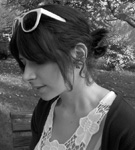 This week, I want to address some practical issues that we have here at Bilkent. I'm making a note of the following problems, because I think other people are also uncomfortable with them. Maybe voicing them in this column will draw the attention of those who can make some changes. This week, I want to address some practical issues that we have here at Bilkent. I'm making a note of the following problems, because I think other people are also uncomfortable with them. Maybe voicing them in this column will draw the attention of those who can make some changes.
First, let's talk about heat. Yes, heat. The heat in the library and on the buses (and maybe in other places, too). The heat that gets unbearable at times. Now, imagine, it's a cold day, one of the many we're going to have in the following few months. Since it's five degrees outside on this typical winter day, you are dressed appropriately in coats, sweaters and scarves. Then you walk into the library, or take a school bus, and the heat from the radiators, which have been adjusted to as hot as 25 degrees, hits your face.
Does it look like there is no problem here? Well, I see a big problem with this situation. Of course, since it's autumn and winter, indoor spaces must be heated. But this shouldn't mean that they're supposed to be as hot as they would be in summer. This is a big source of discomfort for the users of the library and the riders of the buses - that is, all of us. It is distracting, especially when you're somewhere to study; and what's more, it's a perfect way to get ill.
Look around you on a crowded bus, and see how sweaty and red people's faces look. Walking on and off the bus these days means very sudden, almost extreme changes in the surrounding temperatures, from cold to hot, and vice versa. Nowadays everyone is, understandably, somehow frightened by the possibility of getting ill. Yet despite this, no one seems to be thinking that these sudden temperature changes are actually dangerous for our health. I must mention, at this point, that in some contexts, the situation is just the opposite: my four years have shown me that it can get quite cold in some classrooms, especially those in older buildings.
A second point I will make is the long queues and lack of tables and chairs at the restaurants and cafes during lunchtime. It sometimes becomes impossible to have a meal if you only have a break from 12:30 p.m. to 1:30 p.m. I realize that it's not an easy thing to provide the campus with extra dining facilities in the middle of the year, but the issue of long queues, in my opinion, can be fixed. For example, in another private university I've visited, students had dining cards with pre-paid credits in them; so when they were paying for their meals, they simply used these cards instead of cash or credit cards, which made the process easier. Some similar techniques can be applied to our dining facilities. There could be a separate cash register for people with cards. Of course, it's not up to me to decide that this is physically applicable, but I think everyone agrees that something must be done about lunchtime traffic!
Other things are on my mind, too. I wonder why the bathroom of a particular cafeteria is always dirty, and why people don't protest about this unsanitary issue. I wonder why there is still an ID check point and a metal detector at the entrance of B building and why, if we are so anxious about such catastrophes like the one we had in April, such precautions are only taken for B-Bbuilding and, to some extent, the library.
After all, Bilkent is a very big institution; problems will never end and it's impossible to satisfy everyone and meet everyone's demands. I'd actually like to mention your problems, too, so if you are bothered with any other issue around the school, send me an e-mail and let me share your opinions.
By Damla Okay (COMD/V)
 |







